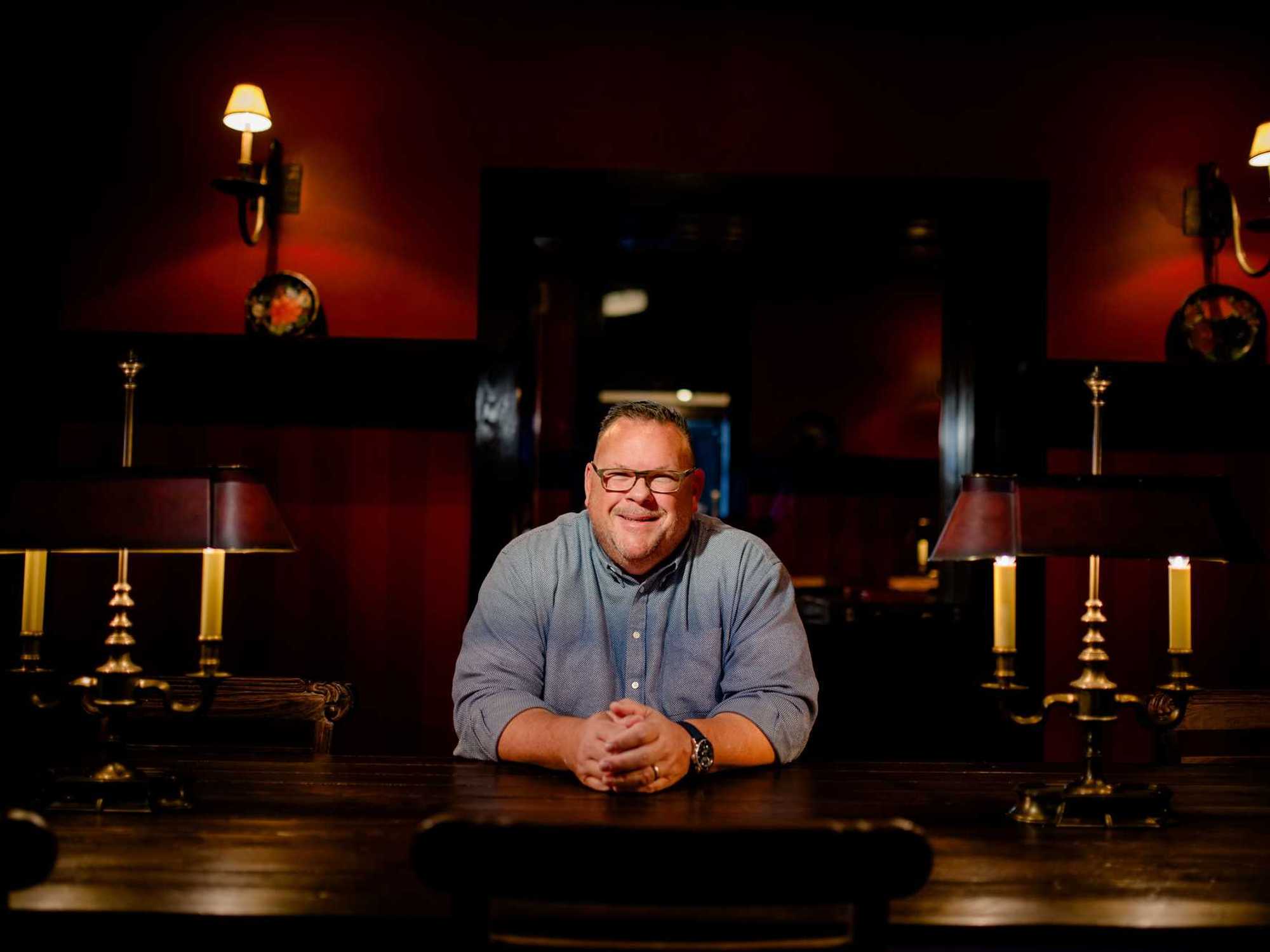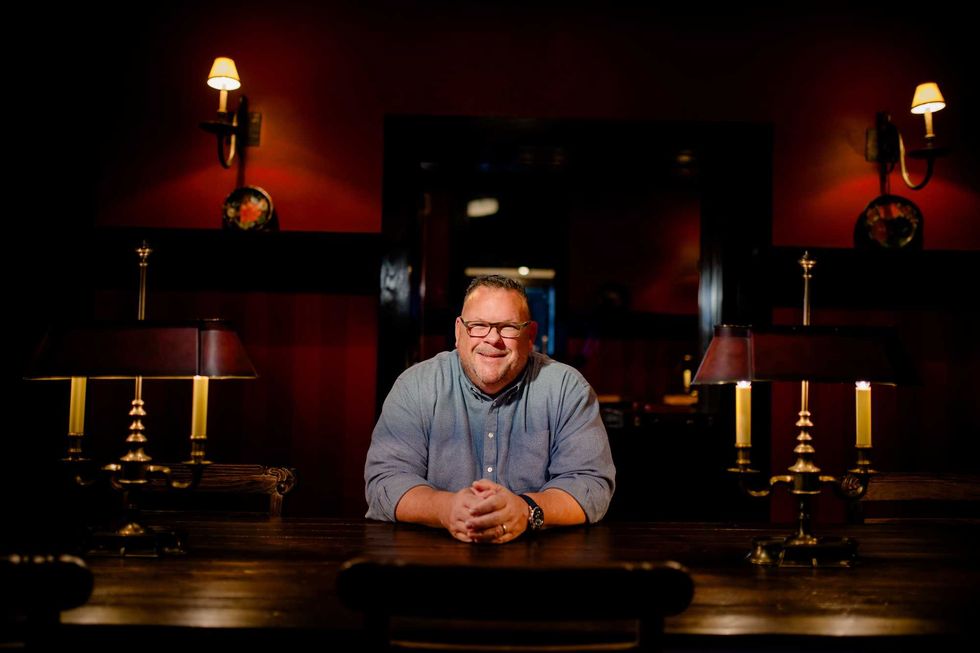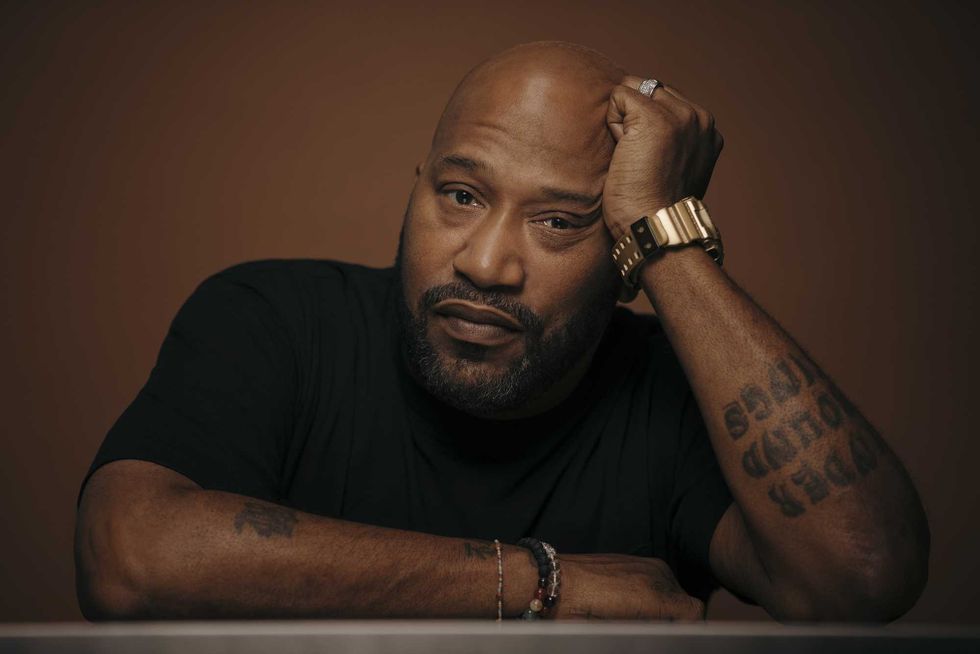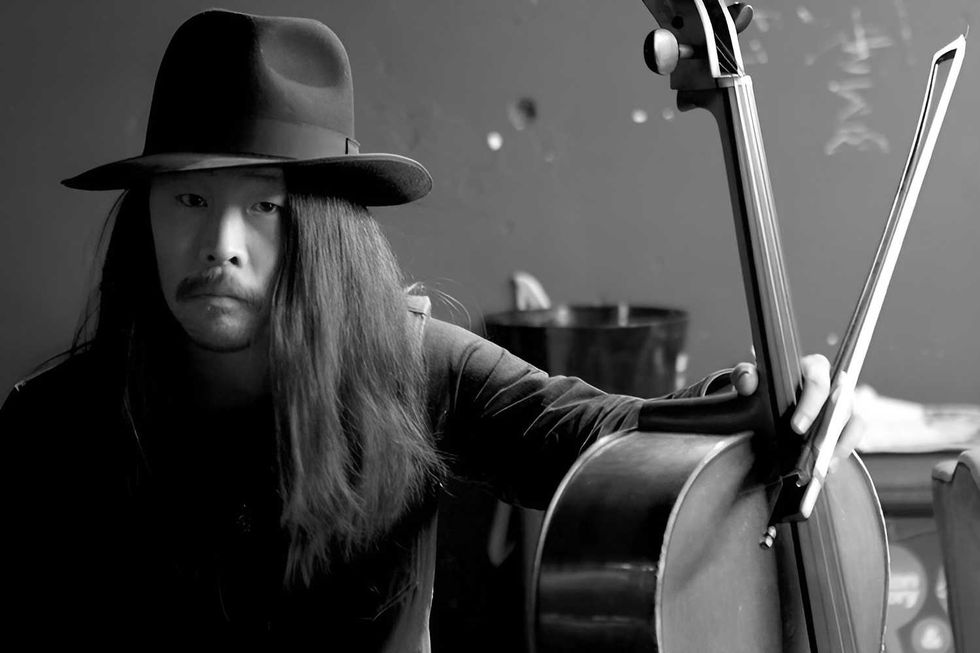Conductor Search
Should hotshot conductor James Gaffigan be on Houston Symphony's short list?
 Photo by Mat Hennek
Photo by Mat Hennek Photo by Mat Hennek
Photo by Mat Hennek
Standing next to pianist Jonathan Biss after a seriously frolicsome performance of Beethoven's Piano Concerto No.3 in C Minor, young hotshot conductor Jimmy Gaffigan appeared humble and petite. We tend to like things bigger in Texas and though Gaffigan is slightly on the vertically challenged-side, it does not inhibit his huge spirit, contagious charisma and commanding stage presence.
His beaming smile doesn't hurt either. He's cute, too.
The Houston Symphony was in rare form this weekend under his baton. The ensemble blend was sublime and principal solos soared with fresh artistry, most notably, John Thorne, associate principal flute, Aralee Dorough, principal flute, oboist Bob Atherholt, clarinetist David Peck, bassoonist Rian Craypo and William VerMeulen and the horn crew.
Performing a diverse and somewhat curiously disjointed program that also included Charles Ives' Symphony No. 3 and Dvorak's Symphony No. 7 in D Minor, a work often sidestepped in favor of the more popular G Major and New World symphonies, it was another exploration in how a conductor can affect the sound of an orchestra, in this case, for the better.
In this, the second of a CultureMap series speculating on guests' conductors candidacy for music director post-Hans Graf, who is retiring in 2013, talking about Gaffigan is something I take delight in as I have known him since his days as a struggling bassoonist at the Aspen Music Festival and School followed, by our mutual degrees at the Shepherd School of Music at Rice University, which also included Houston Symphony musicians Adam Dinitz, english horn, and Allison Garza, piccolo — they happen to be on the program's cover.
Could Houston handle a Yankee?
Colloquially known as the "young slave orchestra," an Aspen ensemble dedicated to accompanying violin prodigies during the reign of Dorothy Delay, Gaffigan and I landed in the same woodwind rotation, a way of paying our musical dues, per se. The repertoire, for us, that is, sucked. His sardonic sense of humor, often cracking inappropriate jokes while imitating those who deserved harmless mocking, kept the mood light and refreshing while allowing the rest of us to forget that he tended to play on the sharp side. You would expect that from a New Yorker.
It wasn't until we were reunited at Rice in 2001 that I realized his determination to sharpen his conducting skills. His abilities were apparent, instantly. A rehearsal of Beethoven's Symphony No 4 and a run of Mozart's Figaro (which included impersonating faculty and inappropriate improv) were equally rewarding for the musicians and the audience.
He is a free spirit, happily enjoying life's idiosyncrasies, from the fine to the banal.
The pros:
- Gaffigan has an impeccable sense of timing, pushing and pulling musical phrases with utmost ease. He seems to understand music-making in a macro level, presenting a cohesive interpretation, while allowing musicians freedom of expression, something not to be taken for granted in orchestral performance.
- Musicians and audiences like him. He is often humble on stage while recognizing individual contributions. During Saturday's performance, he made a point of acknowledging principal players while standing with the orchestra, not aside and not in front, sending a strong message of appreciation.
- He is comfortable, willing and able to speak to audiences, giving us listening cues beyond what has been provided in the program notes. A skill not underrated, symphonies are in need of music directors that can connect with listeners, personably.
- Born in 1979, Gaffigan has already achieved superstardom in orchestra and operatic circles, having served as associate conductor of San Francisco and the Cleveland Orchestra, guest conducting everywhere including the Zurich Opera, Aspen Music Festival, Glyndebourne, Tanglewood, Chicago Symphony, Philadelphia Orchestra, St. Paul Chamber Orchestra and the Leipzig and Stuttgart Radio Orchestras among others.
The cons:
- Gaffigan is young, which may prove an asset in recruiting new audiences, but perhaps a detriment in getting buy-in from more conservative sources.
- Houston seems to be comfortable with European music directors with accents. The Houston Symphony has only hired two American-born music directors since it reformed in 1930: Ernst Hoffmann, music director from 1936 - 1947, and Lawrence Foster from 1971 - 1979. Maybe Gaffigan's appointment beginning this summer as the Chief Conductor of the Lucerne Symphony Orchestra and Principal Guest Conductor of the Netherlands Radio Philharmonic Orchestra will encourage Houston to take a serious look.
The other stuff:
- Gaffigan's conducting style is sophisticated and fun to watch. Though I observed a few pimp slaps, bitch slaps and "Who's your daddy?" moves, the orchestra responds well to his hilarious swaying, even when he looked like he was in the middle of a Star Wars lightsaber duel mixed with a little ballet sur la pointe.
- Whatever you do, don't watch the eyes and eyebrows. He is a flirt.
- Though he doesn't have long conductor hair (but most definitely not like Graf), there is an acceptable amount of dramatic movement. I can work with that.
Get to know Gaffigan. Here is a video where he explains a recent summer season at the San Francisco Symphony:
Gaffigan conducting Mozart's Ouverture to Il Ratto del Serraglio:






